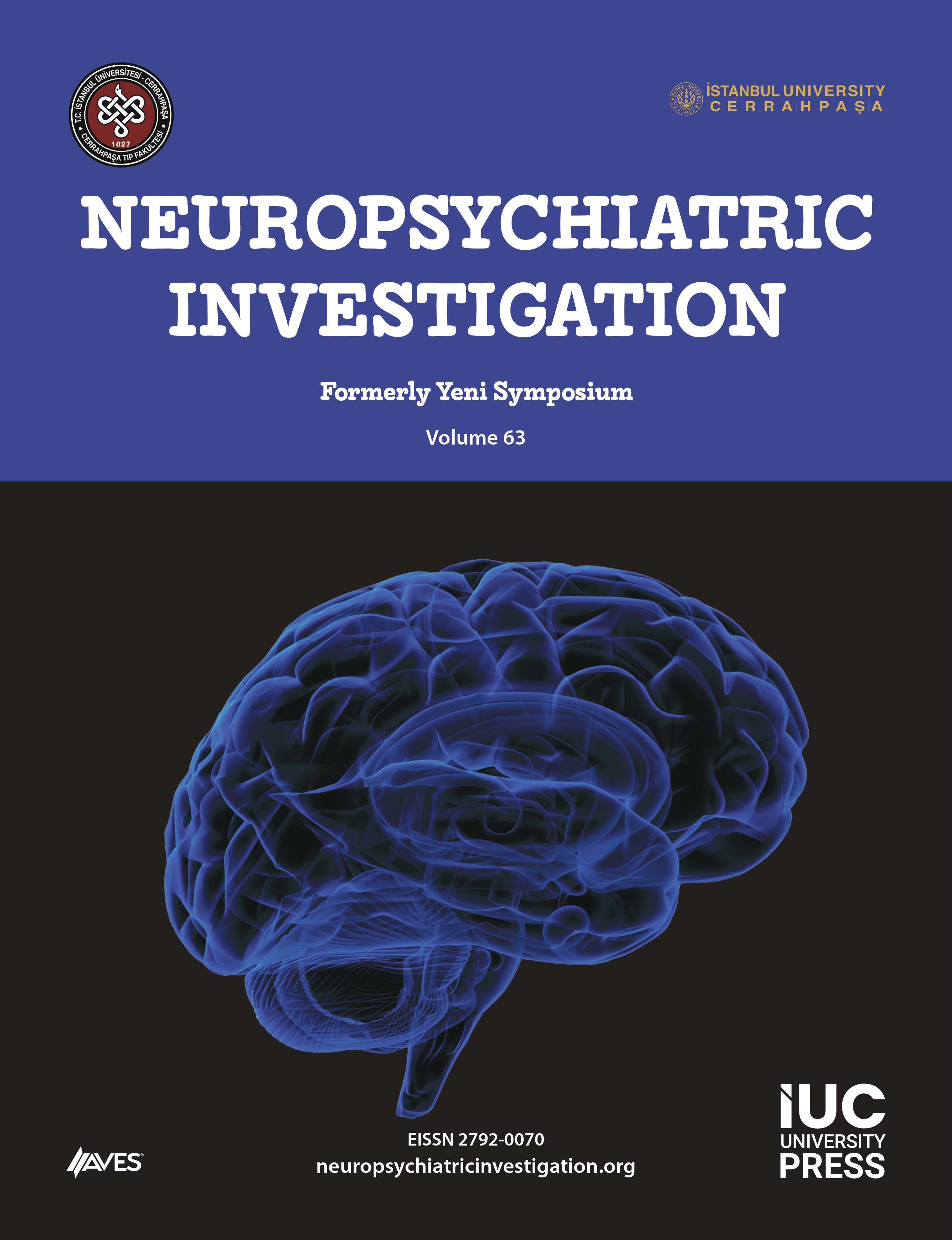Objective: Our study aimed to investigate the factors that can predict the response to repetitive transcranial magnetic stimulation (rTMS) in patients with obsessive-compulsive disorder (OCD).
Methods: We conducted a retrospective study of the patients with OCD who underwent rTMS. The patients were categorized into 2 groups based on their Yale–Brown Obsessive-Compulsive Disorder Scale (Y-BOCS) scores before and after rTMS treatment: responders and non-responders. A response for patients with OCD was defined as a decrease of 35% or greater in Y-BOCS scores following rTMS. We compared sociodemographic and clinical variables in 2 groups. Additionally, binary regression analysis was performed to examine the parameters that predict the response to rTMS.
Results: The study included 90 patients records. The mean age of the patients was 34.83 ± 10.54 years, and the most patients were female (70%, N=60). After rTMS treatment, 78.9% of patients had a 35% or greater reduction in baseline Y-BOCS score. There was no significant difference in socio-demographic variables between the responder and non-responder groups, while the duration of OCD was statistically significantly longer in the non-responder group than in the responder group (12.05 ± 7.57 vs. 8.34 ± 5.17, P=.01). The binary regression analysis could not found any factors that significantly predicted the response to rTMS.
Conclusion: The probability of OCD patients responding to rTMS treatment may decrease as the length of the condition increases. Consequently, psychiatrists may employ rTMS therapy at an early stage in patients with OCD, thereby enhancing the efficacy of rTMS.
Cite this article as: Zengil S, Uygur H. Predictors of response to transcranial magnetic stimulation in obsessive compulsive disorder patients: A retrospective study. Neuropsychiatr Invest. 2024;62(2):67-72.




.png)